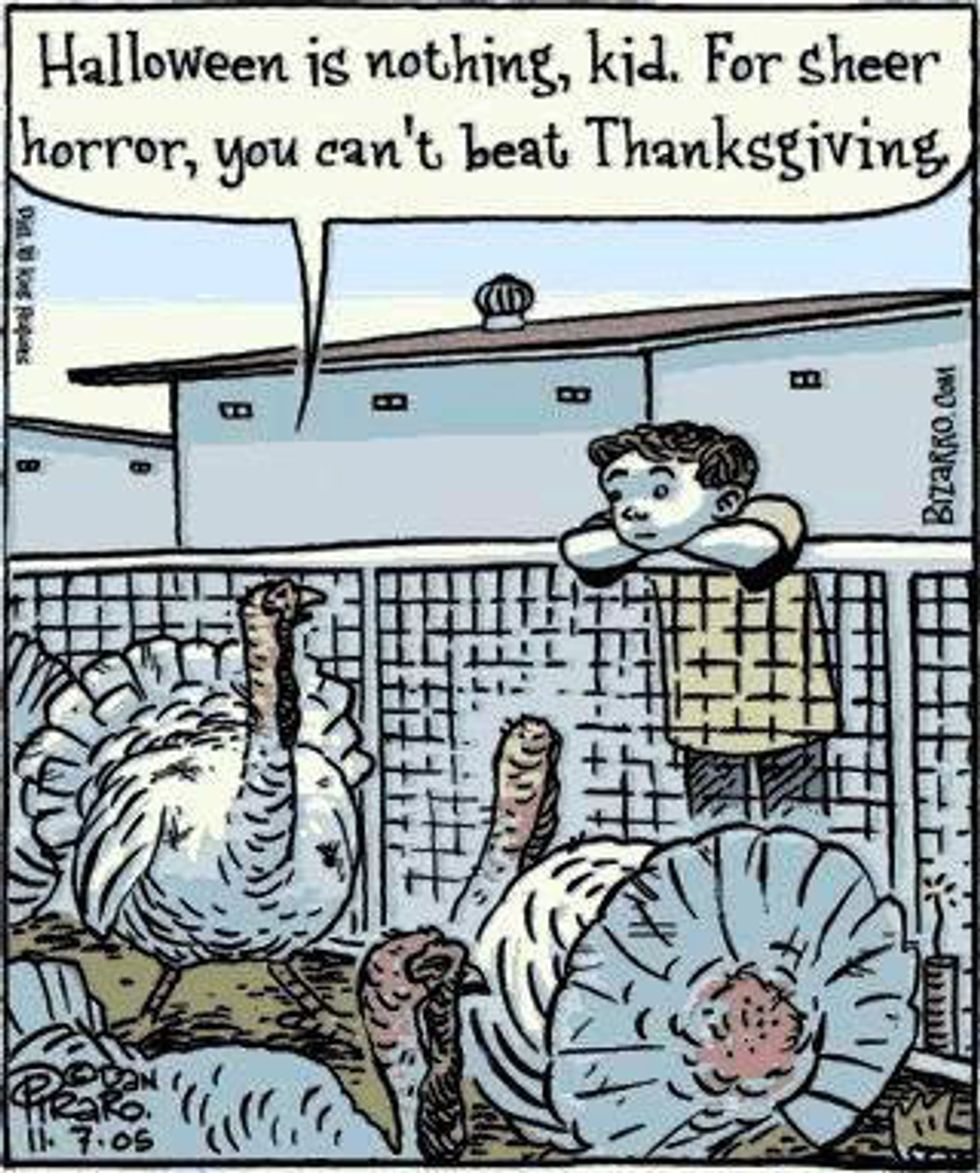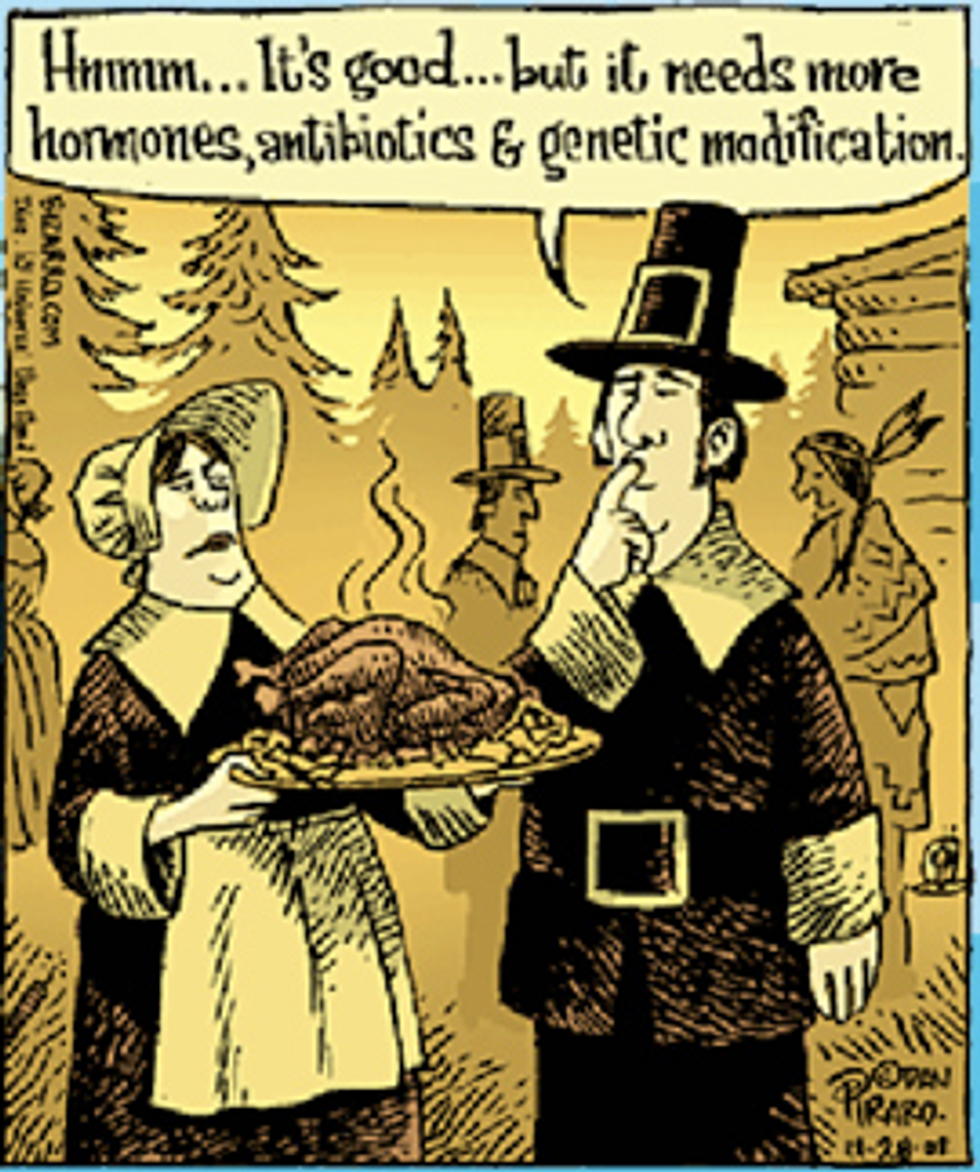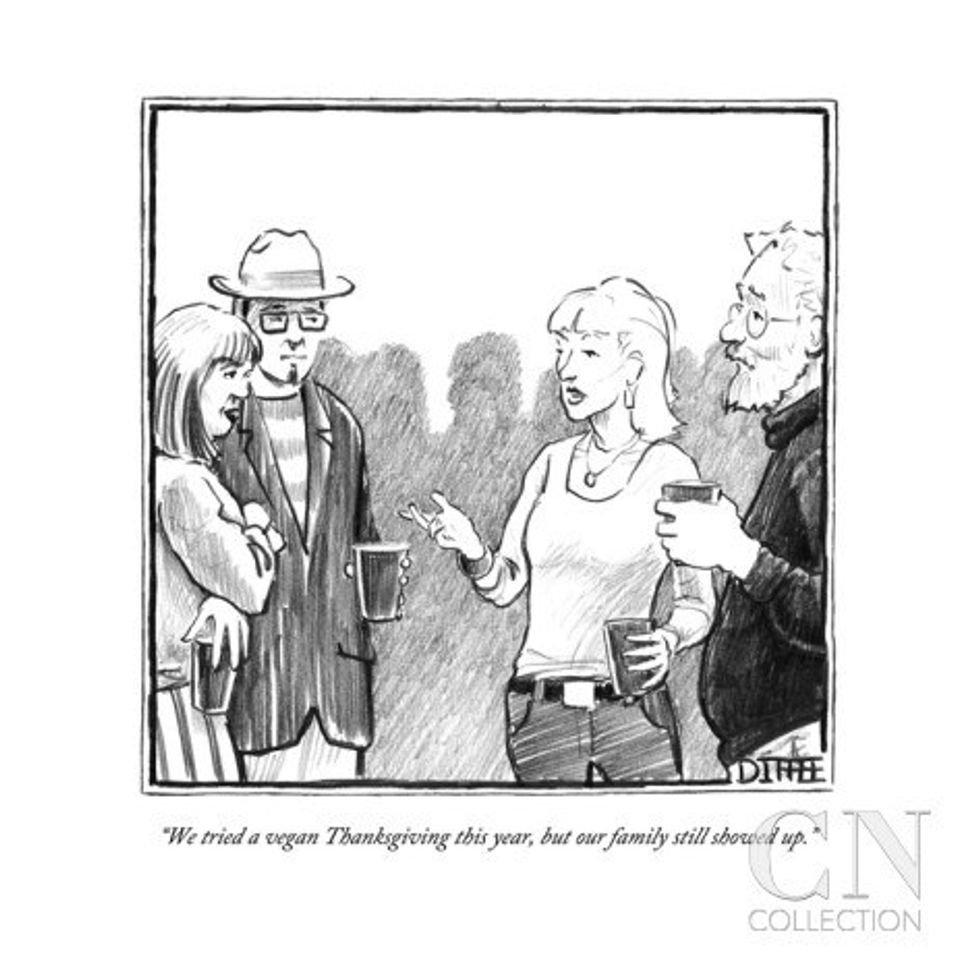It’s the animal always associated with the United States’ beloved holiday. Thanksgiving, also referred to as Turkey Day, is famous for the classic family dinner with a turkey in the middle of the table, the focal point of the meal.
Though turkey was not eaten on the original Thanksgiving day back in the 17th century, it was eaten in early celebrations of the holiday and the trend caught on. This was mainly because turkeys were considered more of a delicacy than, say, chickens, and were used on special occasions like holidays. They were also large enough to feed a whole table of hungry Americans. To this day, this tradition has maintained its prominence in the holiday.
Having been a vegetarian for more than six years, I haven’t eaten turkey for Thanksgiving in a very long time. (And I’m not sure why people like it so much—it’s dry and tastes like napkins, from what I can remember.) And, since my immediate family isn’t big meat-eaters themselves, we haven’t cooked a turkey at my house for Thanksgiving since middle school. Our friends and my relatives find it strange, but I find it comforting and normal. I think it’s strange that there is a holiday in this country based on two main factors: 1) giving thanks and 2) the slaughter of millions of innocent animals to give this thanks.
Every year, my family chooses to opt out of the traditional Thanksgiving dinner, sparing ourselves a turkey pumped full of antibiotics and hormones and God knows what else. Instead, we have a vegetarian/vegan Thanksgiving, and they relatives can join if they want (and, surprisingly, they still do.) This year, I was in charge of vegan apple pie and pecan bars. And, as always, I devoured my beloved sweet potato casserole (with vegan marshmallows) and mashed potatoes. There is no desire for a turkey at the table. I am not missing out on anything.
So I say forget tradition and start your own traditions. Not every tradition is ethical or makes sense, and, to me, eating turkey on Thanksgiving is one of those traditions.
























